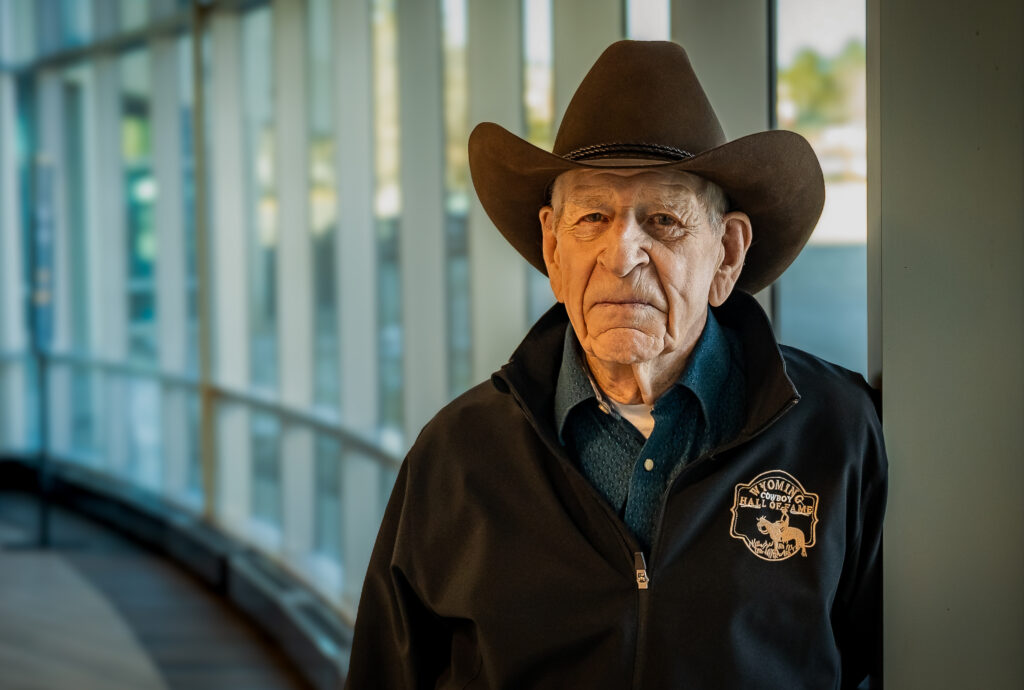

Cowboys are made a little tougher than most people, so when you find one in the hospital, you know that things are serious. Take Frank Svalina for example. This 89-year-old cowboy spent most of his life on the ranch — a homestead his father established in 1912. “It was a pretty rough life out there. Anything you done, you done with horses or yourself,” Frank explained with a quiet laugh.
In 2021 Frank was inducted into the Wyoming Cowboy Hall of Fame, and despite growing up doing hard ranch work — or perhaps because of it — he was always healthy. Then, in 2009, he started experiencing dizziness, shortness of breath and fatigue. After open heart mitral valve replacement surgery using a biologic valve, his symptoms abated.
“I asked how long that valve would last, and they said about twelve years,” Frank said. “Turns out they were pretty spot on.” In May 2022, Frank began experiencing heart problems again and was admitted to Monument Health Spearfish Hospital. “An echocardiogram done at Spearfish Hospital revealed severe degeneration of his tissue valve with severe mitral regurgitation,” said Cardiologist Rajesh Pradhan, M.D., FACC.
Mitral valve regurgitation describes when the valve between the left heart chambers doesn’t fully close which allows blood to move backward through the valve. Dr. Pradhan continued, “After a short stay in the hospital he was discharged home, however, after a couple of days his wife drove him to Rapid City Hospital Emergency Department to get admitted — he was hypoxic and gasping for air.”
Interventional Cardiologist, Joseph Tuma, M.D., FACC, FSCAI, said, “For patients with complex structural heart disease, we do what’s called the heart team approach. Our imaging cardiologists are part of that team, interventional cardiologists like myself are part of that team and the cardiac surgery team also evaluates the patient.”
By using this collaborative approach, the physicians at Monument Health Heart and Vascular Institute are able to ascertain the best approach for a patient like Frank, and work with them to ensure the best possible outcome. “Dr. Pradhan is a very advanced cardiac imaging specialist, and he did a transesophageal echocardiogram and a cardiac CT scan to get a better look at the valve,” said Dr. Tuma. “In cases like these, the team sits down, looks at the images, decides what the best option is for the patient and then we meet with the patient and explain what we’re thinking.”
In Frank’s case, the best option was to use a minimally invasive procedure called a transcatheter heart valve replacement, which allows the valve to be replaced using a catheter that is inserted through the femoral vein. The procedure was a success. “When he woke up from anesthesia he instantly felt better,” explained Dr. Pradhan. “He basically walked home with a small Band-Aid in his groin two days later, without requiring any prolonged recovery.”
Advances in technology, paired with the heart team approach, ensure that patients like Frank can have minimally invasive procedures close to home, and still receive the best care.